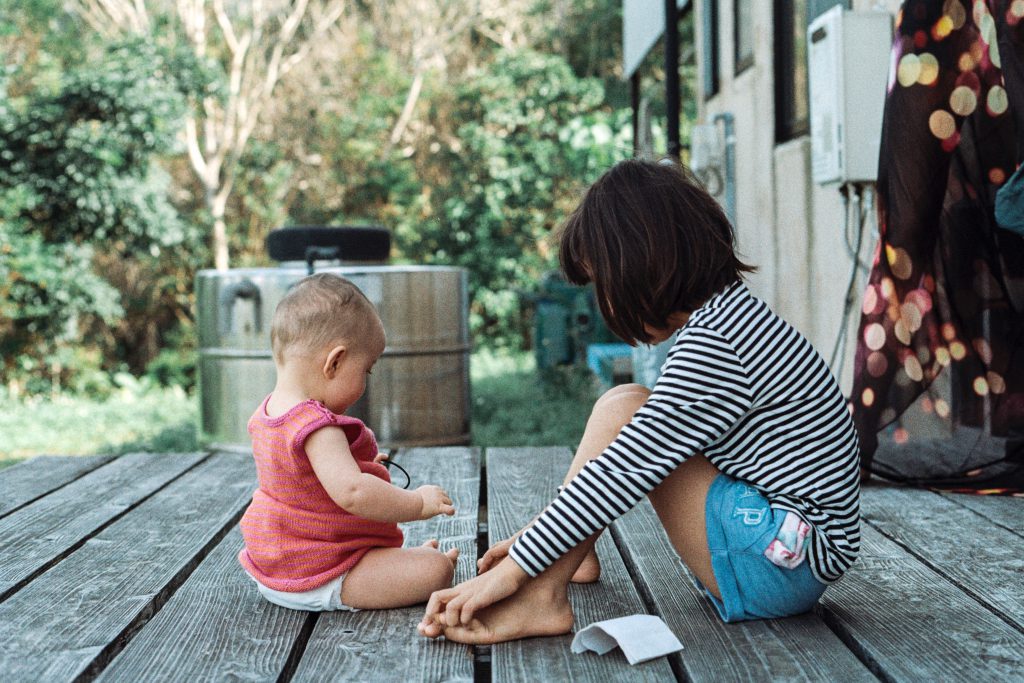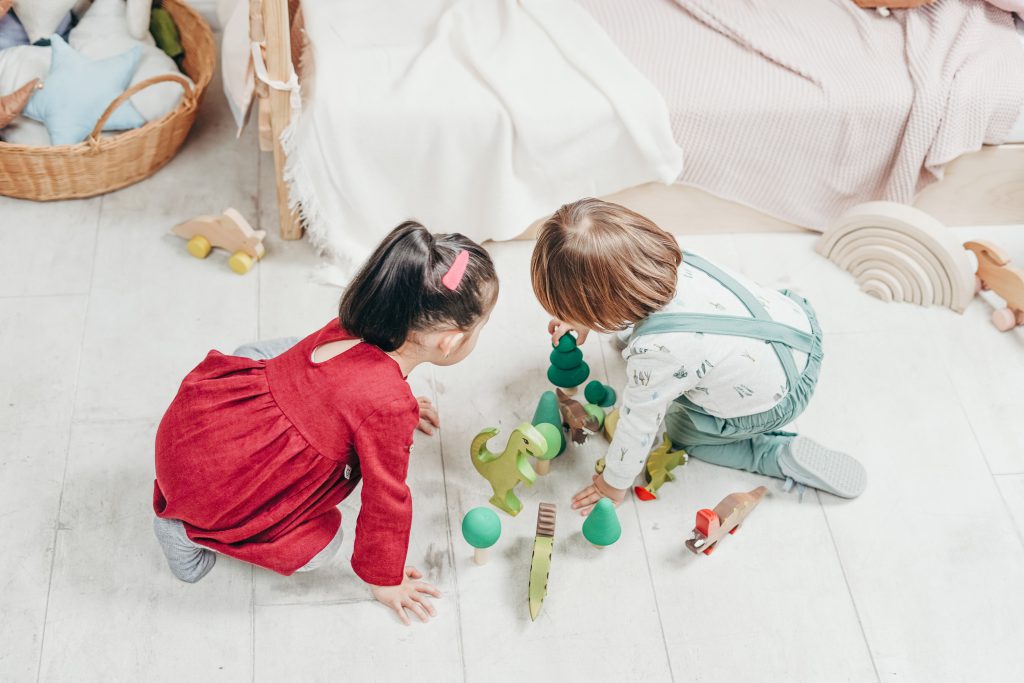From an early age, babies observe the people around them and enjoy interacting with others. But do babies already understand what others think, feel or do? And how do they learn to play with other children and do things together?
Predicting actions
In the BRC we study how babies learn to understand other people. Babies like to watch other people and soon they begin to predict the course of other people’s actions1. We studied this the following way: We showed 6-month-old babies videos of an adult using different objects, such as a cup and a telephone. While babies were watching these videos, we tracked their eye movements. We found that the babies predicted the action with their eyes; they expected a cup to be brought to the mouth and a telephone to the ear! From early on, babies learn about the people around them by observing them closely.


Playing together
We also study the interaction between young children and their parents, how they learn from these type of interactions and how they improve at playing with other children. We examined toddlers aged one and half years old and their ability to play a game with a peer2. We always two children to play a game together in which they had to put a ball in a tube. This game was created in such a way that you could hardly do it on your own. Doing it this way, we wanted to encourage the children to play together. Working together turned out to be very difficult for toddlers: many duos never managed to get the ball rolling through the tube together. Four to five year old children, on the other hand, were capable of completing the task.
Personality in play
Our research also showed that children’s character traits were important for how well they could cooperate with other children3. Children who naturally tended to interact with others outperformed children who were more withdrawn. These contact-oriented children more often shared with or helped the other, gave directions, or asked for help themselves. Parents also indicated that children who worked well together were often better able to control themselves and were less impulsive in daily life.
Future research
With new studies, we want to gain an even better understanding of the social development of young children and the factors that influence this.
Read more?
- Hunnius, S., & Bekkering, H. (2010). The early development of object knowledge: A study of infants’ visual anticipations during action observation. Developmental psychology, 46(2), 446.
- Hunnius, S., Bekkering, H., & Cillessen, A. H. (2009). The association between intention understanding and peer cooperation in toddlers. International Journal of Developmental Science, 3(4), 368-388.
- Endedijk, H. M., Cillessen, A. H., Cox, R. F., Bekkering, H., & Hunnius, S. (2015). The role of child characteristics and peer experiences in the development of peer cooperation. Social Development, 24(3), 521-540.